-
The K
ateliergh“Inanimate objects do you have a soul ?” Lamartine
For more than a decade, the ateliergh has focused on the processes of interaction between humans and artificial environments.
It is in order to move in this direction and confirm the value of such an approach that the ateliergh develops a “tool / language” for the design of living devices based on polysensory interaction : The K
“Inanimate objects do you have a soul ?” Lamartine
For more than a decade, the ateliergh has focused on the processes of interaction between humans and artificial environments.
It is in order to move in this direction and confirm the value of such an approach that the ateliergh develops a “tool / language” for the design of living devices based on polysensory interaction : The K
K’s ambition is to invent a common language, a communication protocol between the different resources of a creative project. The purpose of this design tool is to help create a new typology of places and objects, redefining them as scenes of polysensory scripture and script expressions.
K aims to be a unit of design, architectural or art projects common to all resources useful to their achievements (artist, designer, architect, coder, electronician, client…).
While today’s connected space uses multidisciplinary skills, K aims to bring together these stakeholders around a universal language, meaning.
By the bio-mimetic analogy, (that is, drawing inspiration from the construction of living to build a project.) Here we try to draw a logical parallel between a project and a living being so that both can interact sensitively.
read more less

-

- Biomimicry
K works on biomimetic principles inspired by man. To interact “sensitively” with a device, it must be equipped with the same sensory capabilities as a human being. Skin to smell, eyes to see, mouth to talk, ears to hear, brain to understand…
read more less

-
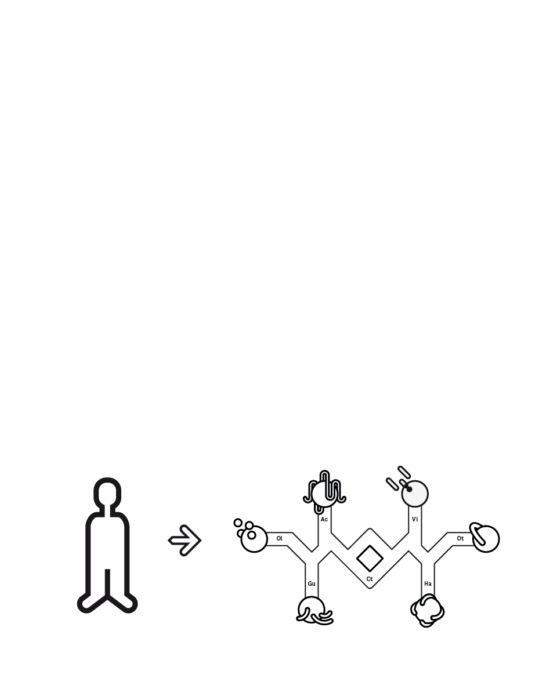
- Polysensory Acuities
By biomimetic analogy, K has the 5 human senses (visual, acoustic, olfactory, gustative, tactile), but also other non-human senses. K has increased sensory abilities. All of these sensory abilities function both as transmitters and receivers.
read more less

-
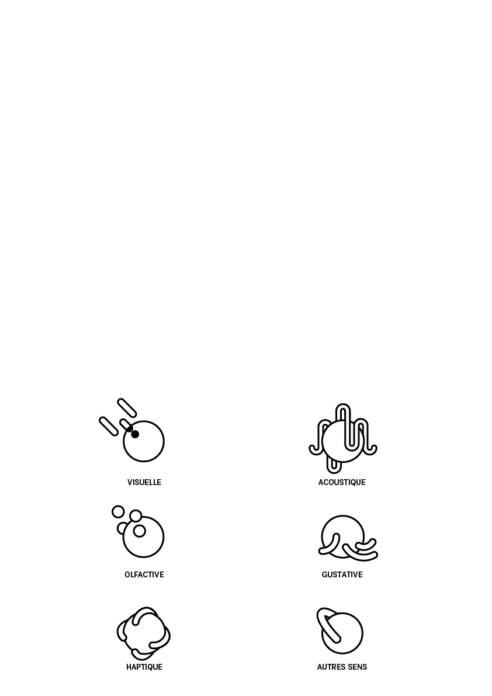
- Controllers
Controllers are K‘s brains.
They receive and transmit data streams.
PC, control cards, hardware / softwareread more less

-

- Components
Components are the constituent elements of a K sensory branch. These are K‘s organs. These components can be either transmitters or receivers. Just as the eye is used by humans to see, the camera is used by the K to see.
read more less

-

- Flow
Data flows flow between controllers and components. These data streams are usually enabled by the user. However, they may be activated by other environmental factors.
read more less

-
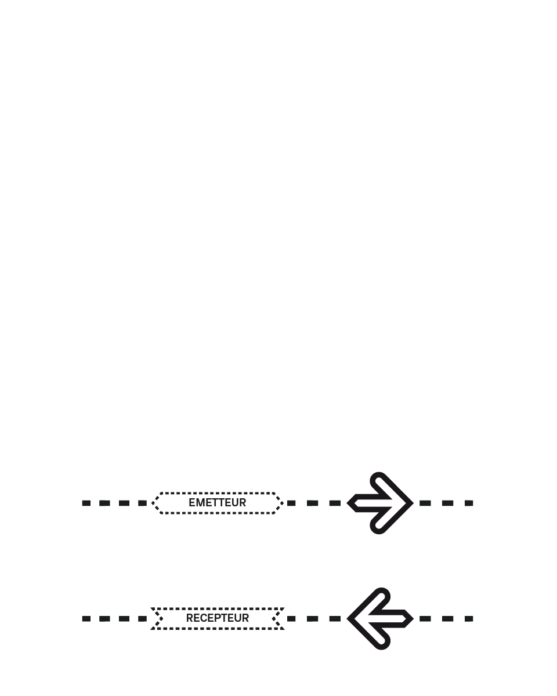
- Network
All K is connected to a centralized network on the web. So it’s remotely controllable in real time.
read more less

-
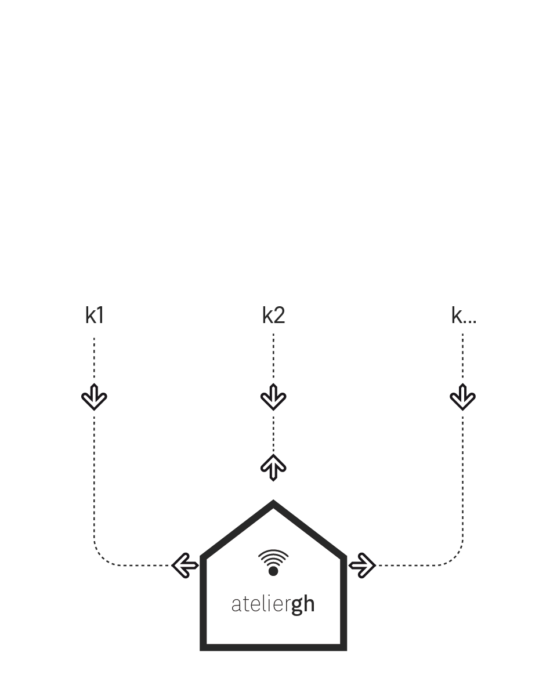
- Scale
The scale of K integration territories varies widely. From object to furniture, from micro architecture to building, from square to city, K modifies each person’s DNA and alters the experience of making it.
read more less

-

- Users
The user or “interactant” is any person or factor interacting with K.
read more less

-

-

- K exemplesread more less


-
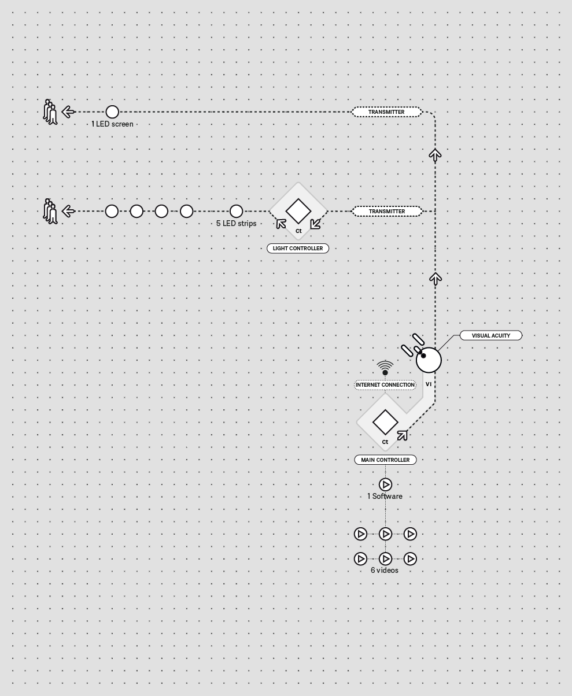
-
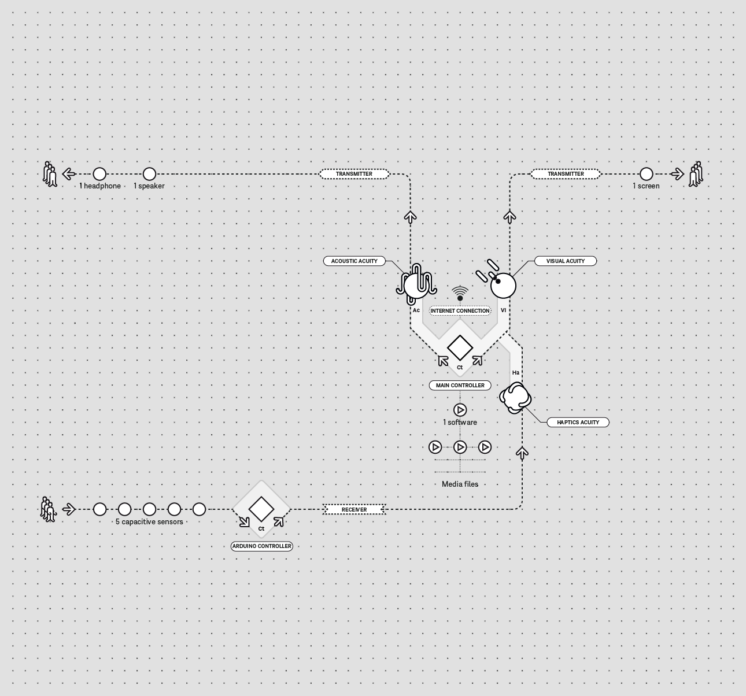
-
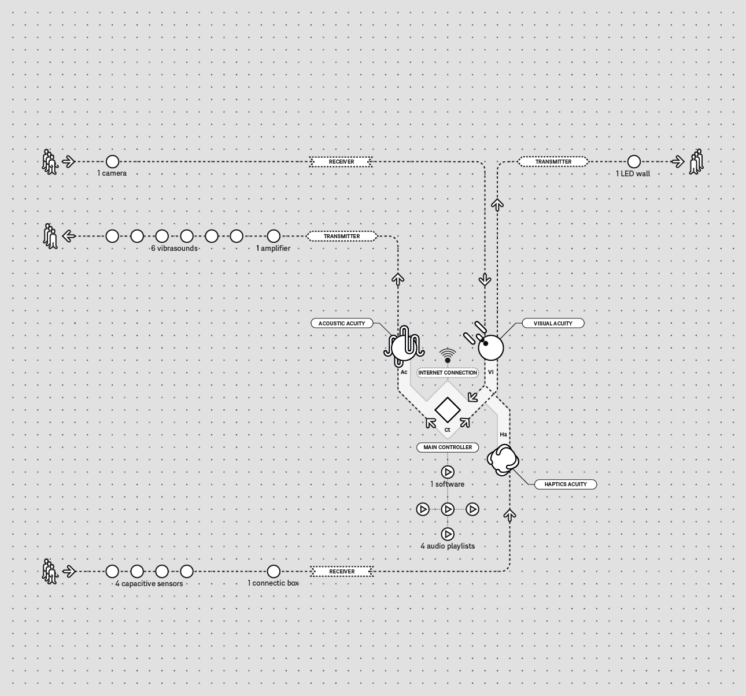
-
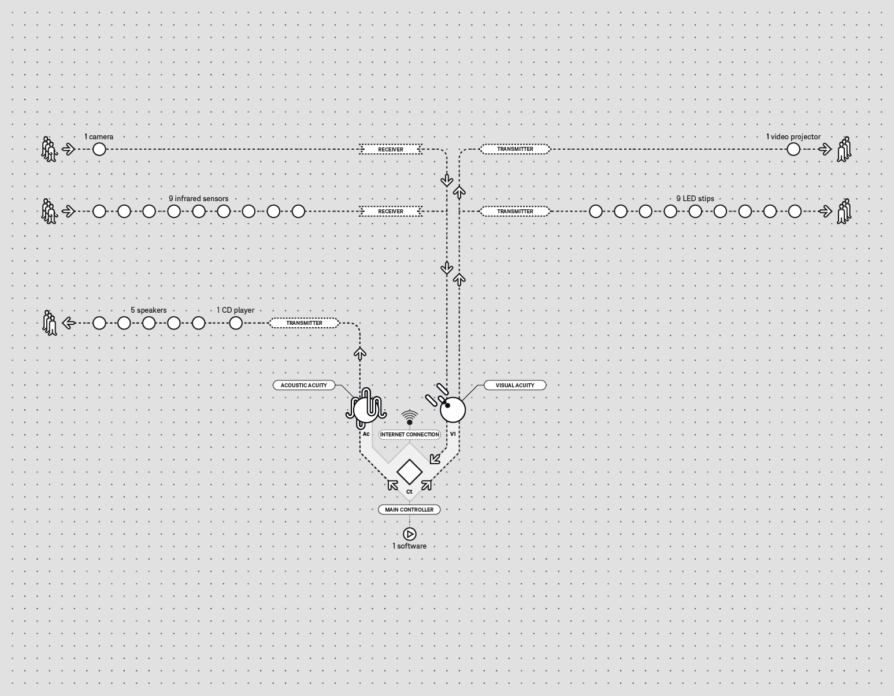
-
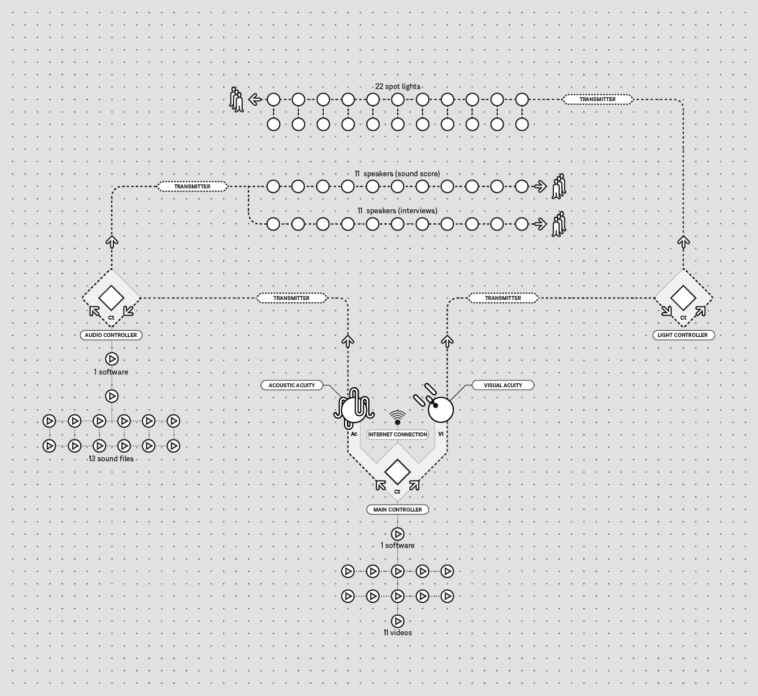
-
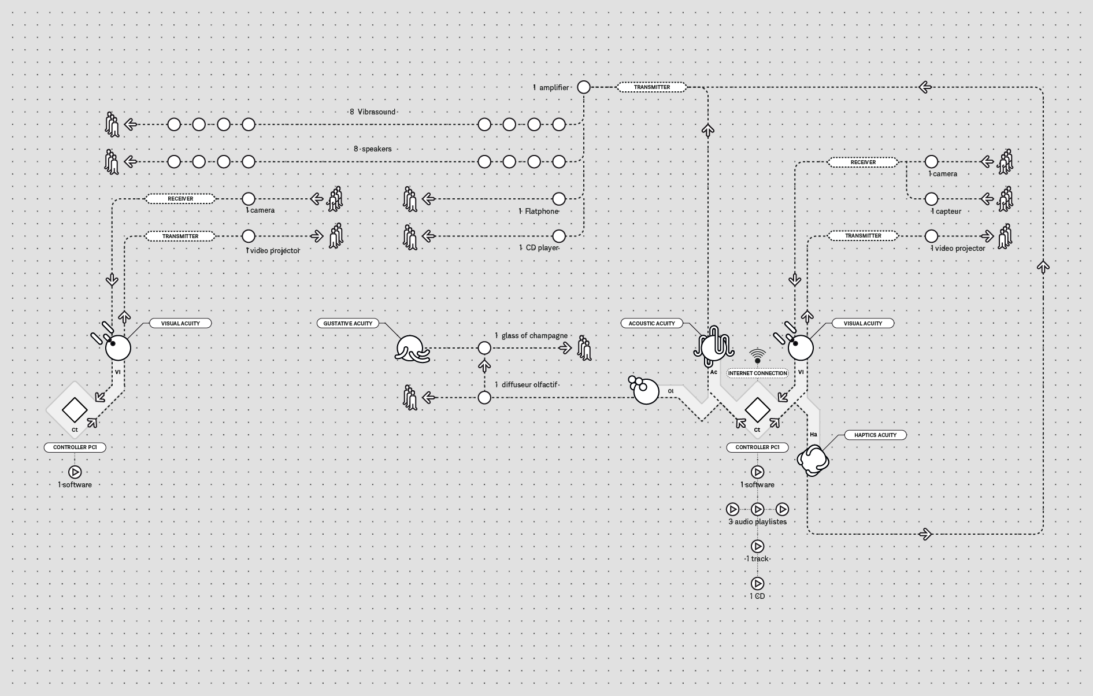
-
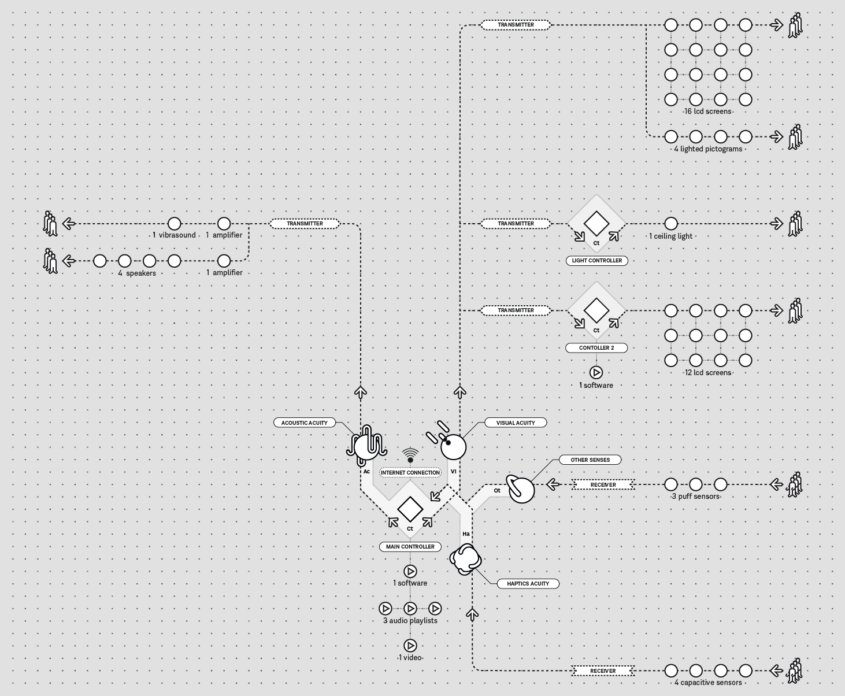
-
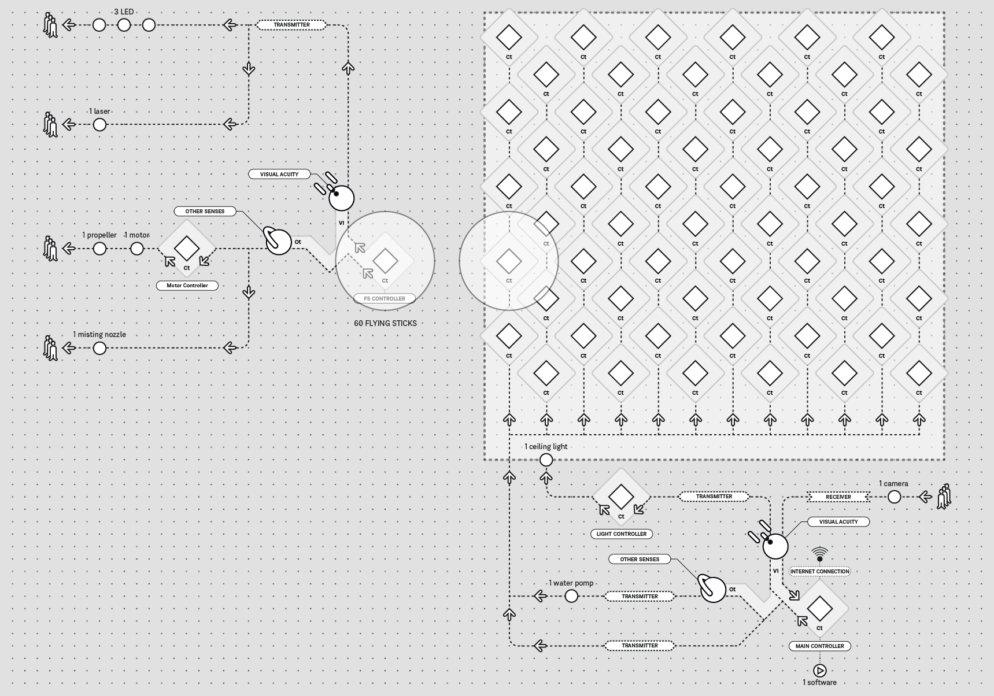
-


